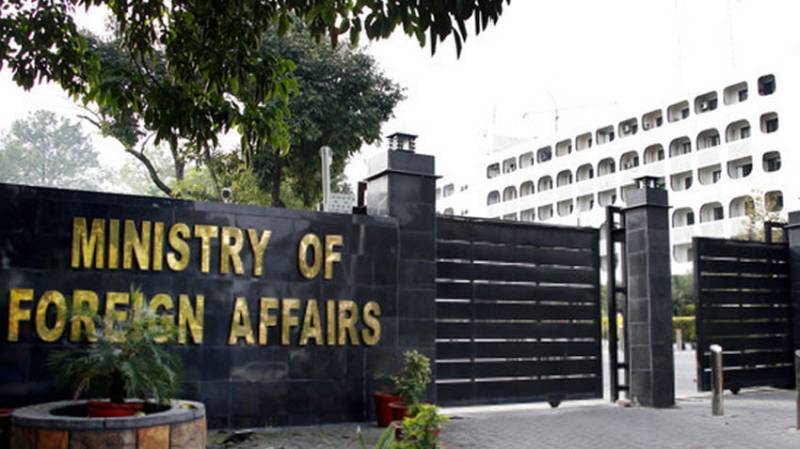Pakistan strongly hits back against India for provocative remarks over reclaiming Sindh
Shares

Pakistan has issued a strong condemnation in response to the Chief Minister of India's Uttar Pradesh, Yogi Adityanath, and his controversial remarks regarding the notion of "reclaiming Sindhu (Sindh)."
These remarks were characterized by Pakistan as "highly irresponsible" and were seen as indicative of a "revisionist and expansionist mindset." The genesis of this controversy can be traced back to Adityanath's statement made a day earlier, where he drew a parallel between the historical events surrounding Ram Janmabhoomi and the potential reclaiming of Sindhu.
Adityanath argued that since the site of the Babri Masjid, known as Ram Janmabhoomi, had been "taken back" after a span of 500 years, there should be no reason why a similar endeavor could not be pursued for Sindhu. He alluded to the ongoing construction of a grand temple for Lord Ram in Ayodhya, which is expected to be inaugurated by the Prime Minister.
To provide context, Ram Janmabhoomi had been the site of the Babri Masjid for nearly 500 years until it was controversially demolished by Hindu zealots in 1992. This event triggered widespread riots across India, resulting in the deaths of around 2,000 people, predominantly Muslims. It remains one of the most distressing instances of sectarian violence in independent India's history.
Adherents of Hinduism believe that Lord Ram, the warrior god, was born in Ayodhya approximately 7,000 years ago. According to their belief, a mosque was constructed on the very spot considered to be his birthplace during the 16th century. In November of a previous year, India's highest court, following a protracted legal battle spanning decades, awarded the site to Hindus, thereby offering Muslims an alternative location to construct a new mosque.
In reaction to these remarks made by the Chief Minister of Uttar Pradesh, the Foreign Office Spokesperson for Pakistan, Mumtaz Zahra Baloch, strongly denounced them. She referred to Adityanath as a "key member of India's ruling dispensation" and a proponent of the "bigoted Hindutva ideology." Baloch also expressed dismay that Adityanath had referenced the reclamation of Ram Janmabhoomi as a precedent for asserting territorial claims over a region that constitutes a part of Pakistan.
Baloch pointed out the historical context, highlighting that it was a Hindu supremacist mob that had brazenly demolished the historic Babri Mosque in December 1992, claiming it as the birthplace of Lord Rama in Ayodhya. She further mentioned that these provocative remarks were inspired by the idea of "Akhand Bharat" (undivided India), reflecting a revisionist and expansionist mindset that not only seeks to influence neighboring countries but also marginalize India's religious minorities.
This, in her view, amounted to a skewed interpretation of history. Baloch expressed grave concern that such ideas were being increasingly advocated by individuals associated with the BJP-RSS alliance as a means to advance their divisive political agenda.
She called upon Indian leaders to prioritize conflict resolution with neighboring countries and collaborate towards building a peaceful and prosperous South Asia, rather than pursuing hegemonic and expansionist ambitions.
In summary, Pakistan has strongly criticized Yogi Adityanath's remarks, framing them as indicative of a revisionist and expansionist mindset that threatens regional stability. The issue raises concerns about the direction of India's domestic and foreign policy, particularly in relation to its neighbors.
Baloch's statement underscores the importance of peaceful resolution and cooperation in South Asia to foster a harmonious and prosperous region.
